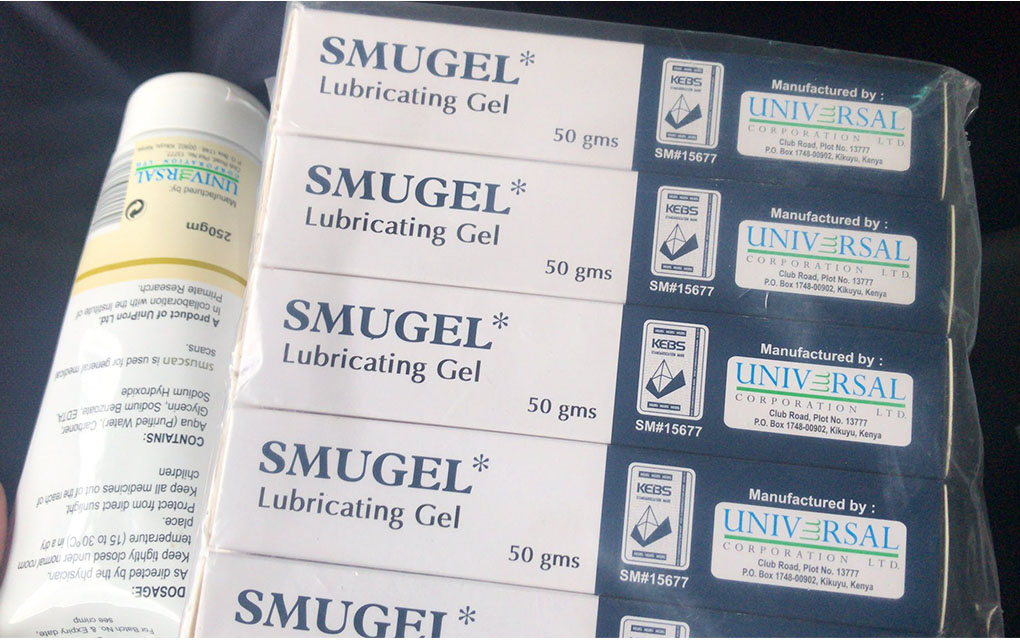
At least 1.5 million Kenyans are living with HIV, with the national prevalence rate standing at 4.5 percent according to the 2018 Kenya AIDS Response Progress report. A new medical gel designed to protect against HIV infection is about to undergo human clinical trials, and if successful, the gel could benefit millions of people across Africa.
UniPron, a medical gel innovated by Kenya’s Reproductive Health Scientist, Dr. Peter Mwethera works by lowering and stabilizing vaginal pH at levels that are too acidic for HIV to survive. The gel which can also prevent unwanted pregnancies has undergone clinical trials in primates and proved very efficient.
Dr. Mwethera has also commercialized two other medical gels; Smugel which addresses vaginal dryness and reduces pain during sex. It is used to safely deliver babies, and is especially valuable for women who have undergone female genital mutilation (FGM) - a cultural practice which affects 27% of women in Kenya and causes recurrent infections, chronic pain, infertility and childbirth complications. The other product, Smuscan gel allows the monitoring of a baby in the womb.
The Cuban way
Twelve years ago, Dr. Mwethera visited Cuba and marveled at how robust the country’s health system was, in spite of the United States embargo against Cuba. He was then motivated to convert his scientific research into medical products.
“My journey to develop these medical gels began after I visited Cuba about 12 years ago. I found out that they have one of the best health systems in the world, and they manufacture their own medicines,” he says.
He thereafter embarked on research to develop the gels, a challenging journey which he describes as “labor intensive, time consuming and capital intensive.”
Market expansion
The Innovations received support through the Kenya National Innovation Agency’s Leaders in Innovation Fellowships (LIF) programme, and Dr Mwethera is hoping to expand into the African market.
“We’ve sent samples of Smugel and Smuscan to Namibia, DRC and Lesotho, and I’m also engaging manufacturers in London to help us access the European market.”
“Reproductive Health is one of the most neglected aspects of health. In September 2019, there was an unfortunate incident where a girl committed suicide in Bomet after ridicule for menstruating in class. These products, for instance Smugel is not only for women but men as well because dryness during sex affects both genders.”
The gels are currently being manufactured by the Universal Corporation Limited; a Kenyan pharmaceuticals manufacturing company certified by the World Health Organization (WHO), and Dr. Mwethera is aiming at partnering with the county governments for the drugs to reach the common mwananchi.
Innovation support
Kenya imports 70% of its medical supplies, and Dr. Mwethera says the government should empower local innovators to come up with products that can be easily accessed and locally manufactured, as importations can be dealt a blow by global mishaps like the Covid-19 pandemic.
“We can only build our country if we have faith in what we have innovated. It is important to build capacity in our systems. We need to support our own products and innovations, and the government should protect products innovated by Kenyans from competition from other manufacturers,” He states.
The researcher however says there is need for Kenyan institutions to have frameworks for research and Institutional research intellectual property policies, adding that scientist need to seriously think how to make Science a Business.
The three gels; UniPron, Smugel and Smuscan innovations have won numerous awards including the Tony Elumelu Entrepreneurship Award in Africa (2015), Africa Union Innovation Award, Brazzaville (2013) the best prize in Science and Innovation category in the Kenya Public Service Innovation and Award Scheme (2012), and best prize in National Council for Science and Technology Award, Kenya (2012).